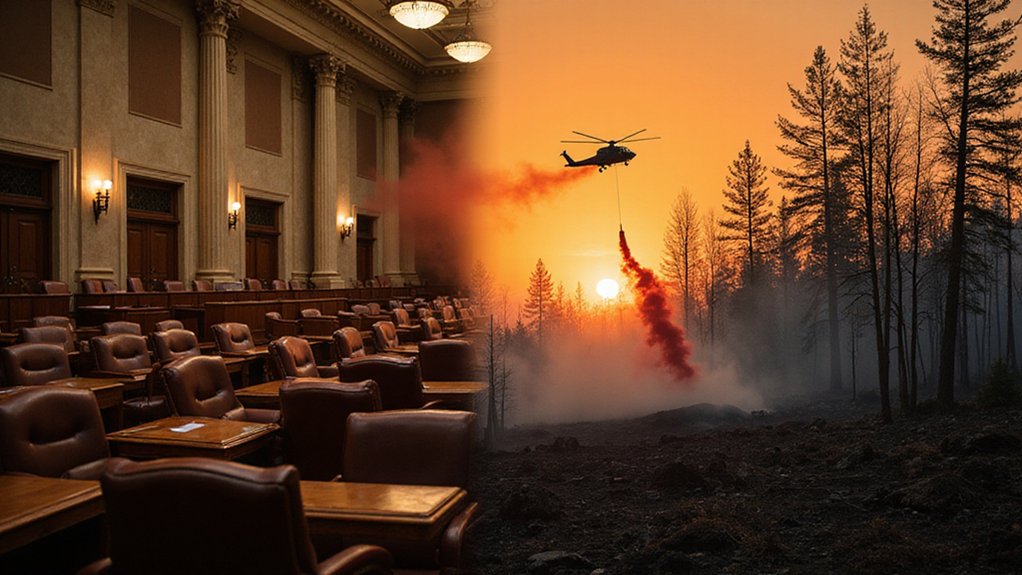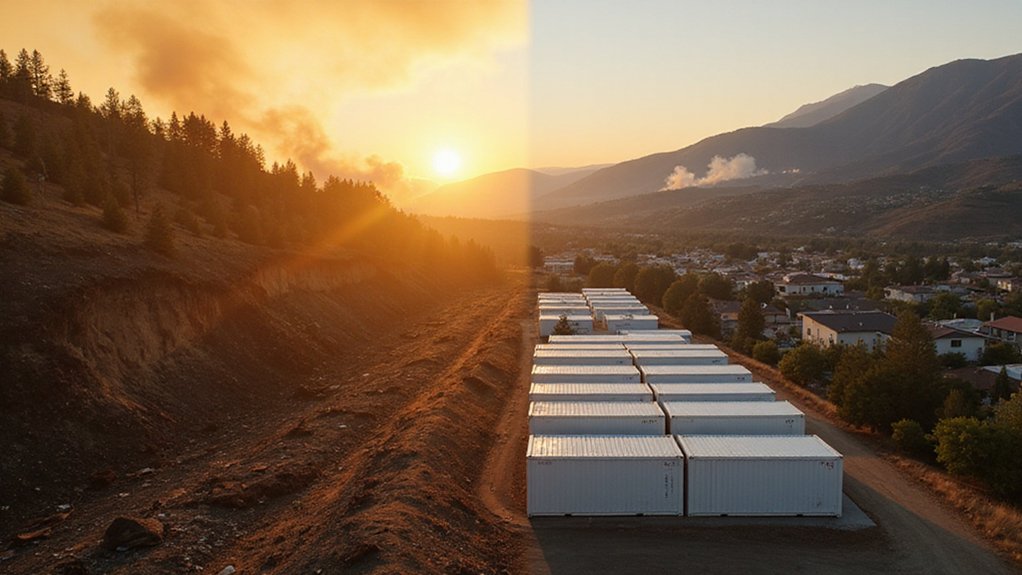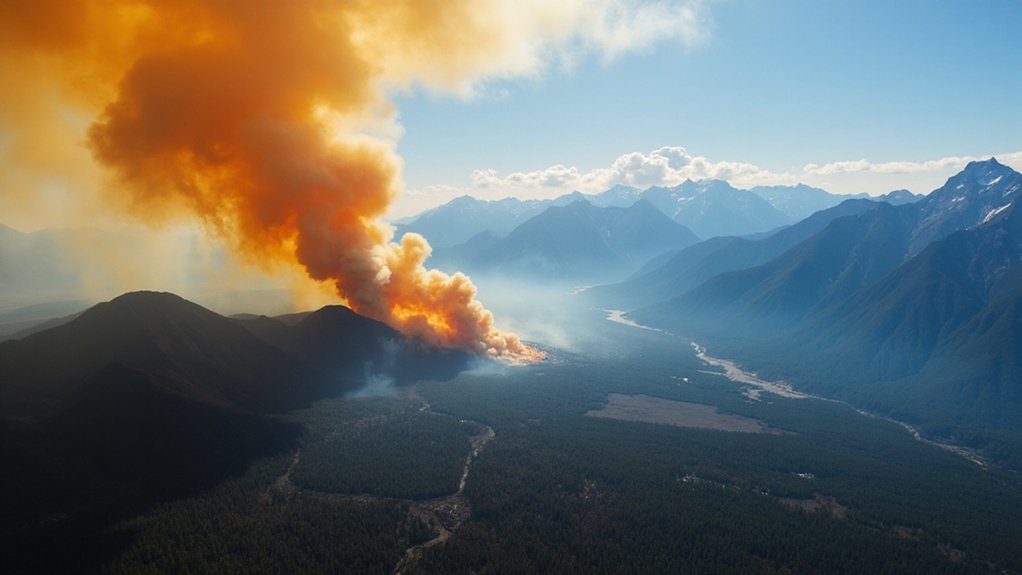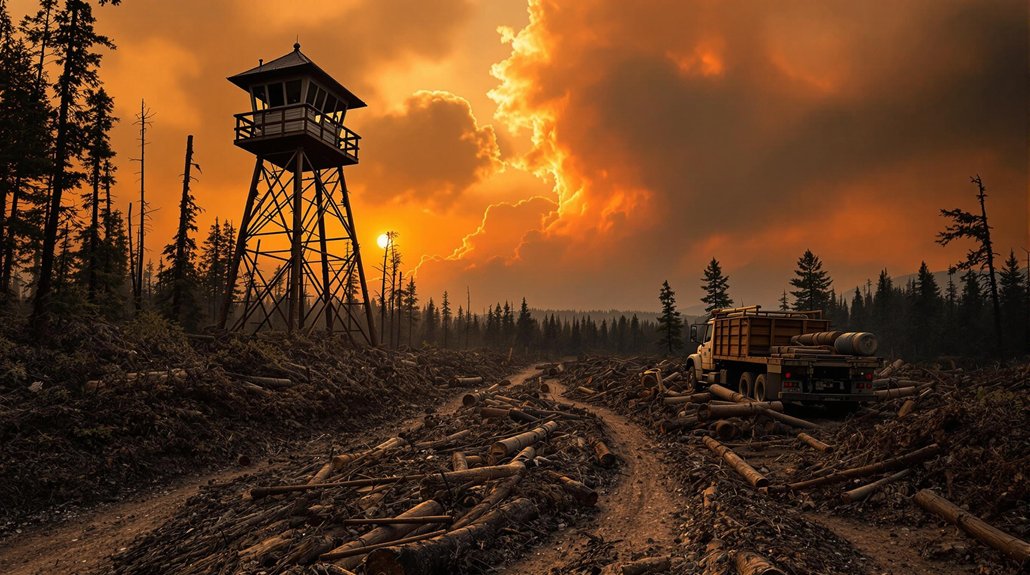Flames of partisanship briefly cooled in Washington this January as lawmakers rallied around the nation’s burning forests. The Fix Our Forests Act sailed through the House with a comfortable 279-141 vote, marking a rare moment of bipartisan agreement in an otherwise fractious Congress. Representatives Scott Peters, a California Democrat, and Bruce Westerman, an Arkansas Republican, championed the legislation. Go figure – it took trees literally burning down to get these people working together.
The bill aims to stop catastrophic wildfires before they start. Makes sense, right? It streamlines forest management projects while keeping environmental standards intact. No more endless red tape when there’s smoke on the horizon. Communities get earlier input on decisions affecting their backyards, and good neighbor authority programs are expanding. Forest management just got a whole lot friendlier.
Prevention over reaction: finally cutting red tape while giving communities a voice in protecting their forests.
Western states have been dealing with “wrongheaded land management” for decades. Now they’re finally getting some help. The legislation creates new categorical exclusions – bureaucrat-speak for “let’s actually get something done without spending years in paperwork limbo.” About time.
The bill passed without hearings or mark-up. Minimal debate. When’s the last time that happened in Congress? Never, probably.
On the aerial firefighting front, H.R. 836 requires evaluation of container systems. The United Aerial Firefighting Association is pushing for multi-year contracts. Ten years would be nice. Stability, imagine that. The UAFA continues to provide critical data to Congress about aircraft capabilities and operational constraints that inform these legislative efforts.
Technology gets a nod too. The Western Wildfire Support Act, co-sponsored by Senator Cortez-Masto (D-NV) and Senator Sheehy (R-MT), includes prize competitions for wildfire response innovation. Overwatch Aero CEO Jordan Hahn is all for it. Tech bros solving forest fires – what could go wrong?
The National Congress of American Indians backs the Fix Our Forests Act. Indigenous knowledge meets congressional action. A rare combo.
The 119th Congress is just getting started, but wildfire legislation is already heating up. With California averaging over 7,500 wildfires annually, these initiatives couldn’t come at a more critical time. Meanwhile, Oregon’s approach includes a wildfire victim compensation fund with liability claims potentially reaching billions for utility companies. Now comes the hard part – implementation. Let’s see if this bipartisan moment lasts longer than the morning dew.
References
- https://www.congress.gov/bill/119th-congress/house-bill/836
- https://www.tuleyome.org/policy-corner-may-2025
- https://aerialfiremag.com/2025/03/03/uafa-new-congress-acts-on-recommendations-for-wildfire-management-reform/
- https://www.congress.gov/bill/119th-congress/senate-bill/140
- https://scottpeters.house.gov/2025/1/rep-peters-landmark-fire-prevention-and-protection-bill-the-fix-our-forests-act-passes-the-house









